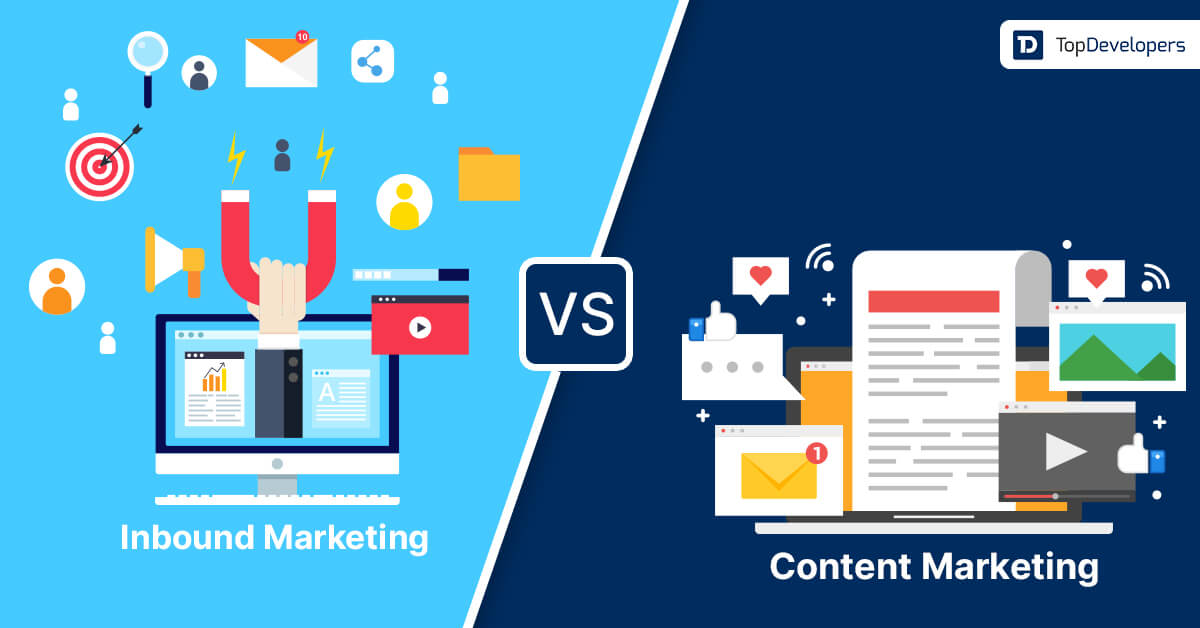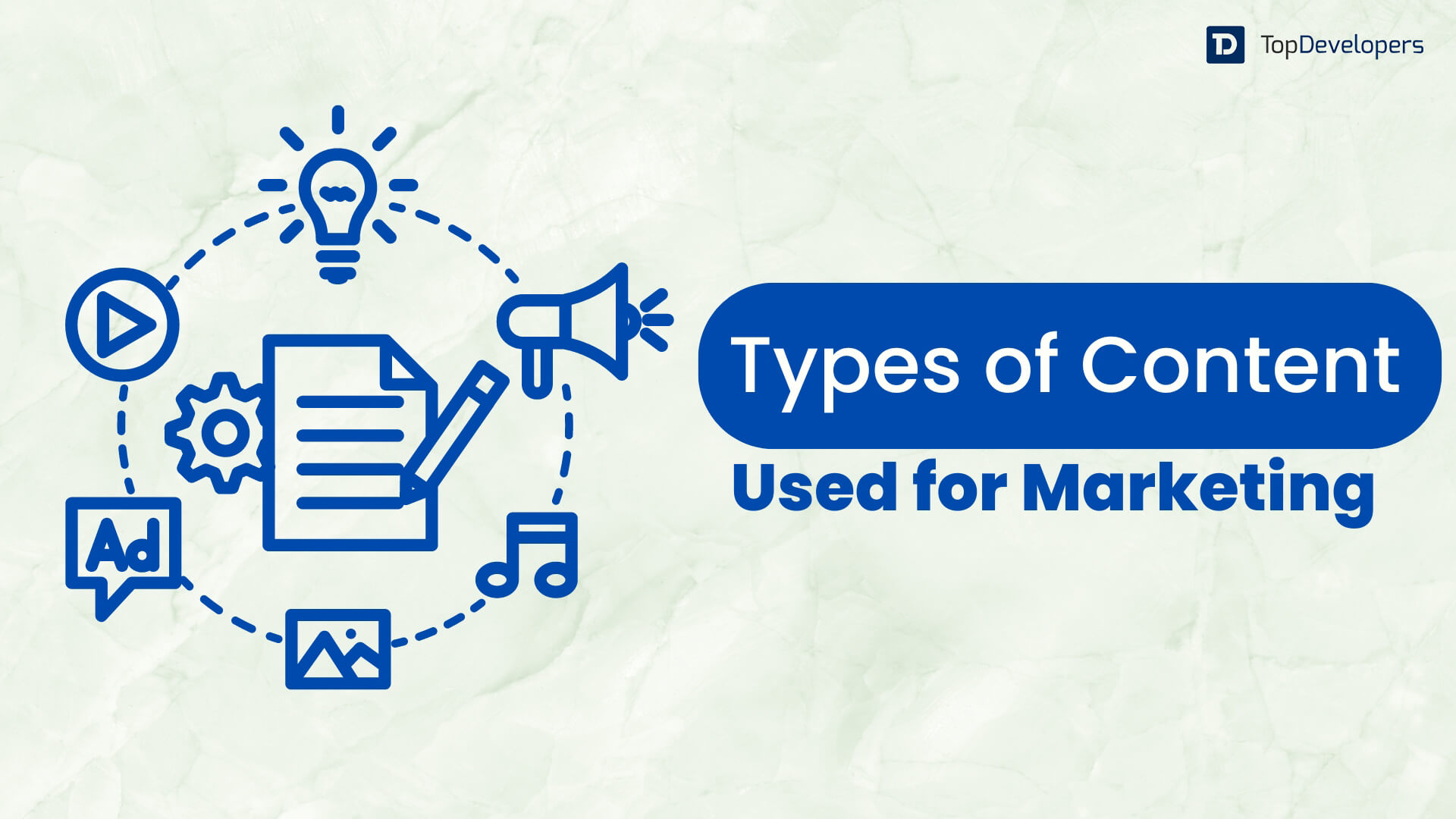
76% of marketers accept that content marketing generates quality leads. While 56% say it produces the highest return on investments.
Content marketing strategy is one of the best ways to build your brand authority, educate your customers and attract new users.
The content on your website, social media platforms and other digital platforms acts as a guide for your ideal customers, informs them about the benefits of your products and establishes a strong brand presence in the industry.
It is the content that gives voice to your brand, helps you narrate your brand journey and appeals to your customers with your stories.
But there are different forms of content. From blogs to social media posts, webinars, ebooks and whitepapers, every content format attracts different groups of people. Plus, they serve different purposes in a marketing strategy.
- How do we know which content format to use and where?
- What should be your content pillars?
- How to plan your content strategy?
This is where content marketing strategy comes into the scene.
If you have no idea how content marketing works, this guide is for you.
Let’s get started!
Table of Contents
- What Is Content Marketing Strategy?
- Why Is Content Marketing Strategy Important?
- How to create a content marketing strategy?
- Content Marketing Best Practices
- Questions to Ask When Creating a Content Marketing Strategy
- Craft an Effective Content Marketing Strategy!
- FAQs Regarding Content Marketing Strategy
What Is Content Marketing Strategy?
A content marketing strategy is the plan for creating and sharing content across all digital platforms.
The best content marketing strategy is the one that:
- Publishes content relevant to your audience
- Builds your brand authority
- Caters to your customer’s pain points
- Increases website traffic
- Converts leads to loyal customers
- Boosts customer engagement
- Builds strong customer relations
Content marketing doesn’t just focus on achieving one goal. If done the right way, it can help you increase your online visibility, build a huge customer base and open revenue streams.
An ideal content marketing strategy includes:
- Goals – what do you want to achieve with your content?
- Audience – who are you creating the content for?
- Content types – which content types will you use?
- Promotion – which digital platforms will you use?
If you align these points correctly, you will build a list of content pillars and topics that offer value to your customers and fulfill your business goals.
For example, you are to run content marketing campaign for a beauty and skincare brand. You can use a content mix of blogs, Instagram reels, and newsletters. So, you generate a buyer journey and create content across all stages to successfully lead the buyer to buy your products at the end.
You will want to educate your buyer about skincare routines and beauty tips. Then you can show how your products fit perfectly to your customer’s ideal skincare regime.
- Blogs will help you educate your customers in detail
- Instagram posts will create a sensation about your products
- Newsletters will keep your audience informed about upcoming sales, offers and product releases.
Please note that content strategy and types depend on your niche. What works for a beauty brand may not work for a tech company.
So, define your business goals, identify your target audience, and plan a winning content marketing strategy.
Why Is Content Marketing Strategy Important?
A documented content strategy helps you create and distribute content that offers value to your customers and helps you achieve your business goals.
Otherwise, you will waste resources in creating content without value for your customers or business.
Here are some reasons why you need a content marketing strategy.
- A content marketing strategy aligns your content format and types to your business goals. This means you will not waste resources creating irrelevant content.
- A content plan ensures that everyone on the team is aware of the purpose of the content and works in sync to achieve that.
- Content marketing agencies often go for documented strategies and brand guidelines. This enables them to showcase their efforts and results to their clients.
- A strategized content calendar streamlines your content creation and distribution process. So, you can publish your content more efficiently and effectively.
- When you have a proper content marketing strategy, you can easily evaluate the results and identify what’s working and what’s not. Therefore, you can change the strategy as and when needed.
- A well-executed plan for content marketing with targeted keywords and topics can bring substantial traffic and leads to your website.
- By consistently producing quality content, you can establish your brand as an authority in the industry. This will also help you build customer trust and gain their loyalty for long-term goals.
Tip: Please ensure that you have a documented content marketing strategy. Because 80% of the content marketing agencies who documented their brand guidelines, resources, goals, and content calendar have high success rates.
How to create a content marketing strategy?
Here is a step-by-step process to create a successful content marketing strategy.
Set a goal
The first step of any digital marketing strategy is setting a goal. Similarly, here you need to set one or multiple goals for your content plan.
The below questions are some of the top ones that will help you define your goals.
- Do you want to attract more traffic?
- Do you want to educate your customers?
- Do you want to educate users and sell products?
- Do you want to boost customer engagement?
- Do you want to have a huge follower base on social media?
- Once you have set your goals, it’s time to find out how to achieve them through a strong content strategy.
Create buyer persona
The next step to planning content marketing is to know who are you creating the content for.
- Understand your audience – who are they?
- What are their pain points?
- What excites or interests them?
- What is their buying intent?
Create a buyer persona of your ideal customer with all characteristics like age, demographics, buying nature, history, interests, challenges etc. Align your ideal buyer persona with the company’s actual customers.
Buyer persona helps you understand what your customers are looking for. So, you create content that either interests them or resolves their pain points. In any case, you will be creating content with a high probability of your ideal buyers consuming it.
Choose your content type
As we discussed before, not all content types perform best for all niches.
A beauty or travel brand may have Instagram reels working best for them. While a tech company can generate leads from LinkedIn posts.
So it’s important to decide your content type and content marketing platform.
Depending on your niche, you can choose from a wide range of content types for marketing like:
- Blogs
- Social media posts
- Video and reels
- Podcasts
- Whitepapers
- eBooks
- Webinars
- Infographics
- Newsletters
Each content marketing type gives you an opportunity to educate users, attract new users, and promote your products. It all depends on how smartly you use them.
Determine buyer journey
The end goal for all digital marketing strategies is to convert the leads into buyers. So your content plan should also follow the marketing funnel assisting leads at every stage to help them make an informed decision.
The marketing funnel includes:
- TOFU (Top-of-Funnel) – make prospects problem aware and solution aware
- MOFU (Middle-of-Funnel) – present your products as the best solution to the problem
- BOFU (Bottom-of-Funnel) – convert leads into buyers through customer stories, demos, and events
For example, you run a wellness products brand. So, at the TOFU stage, you educate your customers about the hair loss problem, its causes, and possible solutions. Moving forward, at the MOFU stage, you present your products as an ideal solution to the leads.
Now at the final stage BOFU, you win over your leads by sharing reviews, testimonials, and customer stories of how your products helped them cure their hair problem.
This content marketing approach takes the user from the top of the funnel to the end with one goal – to buy your products.
Find keywords and topics
Use your market research, buyer persona and data to brainstorm content ideas for your website and business.
For blogs, you need to search for topics with high search volume. But not always high search volume topics get the most clicks and impressions.
Sometimes a keyword with average search volume and quality content can also attract huge traffic. Also, professional digital marketers share their experiences of how trending topics got them a boost in traffic and rankings.
If a topic is new but trending in your niche. If you think this topic is going to be a big hit in the coming time, grab the opportunity.
Be one of the first websites to create and publish quality blogs covering all aspects of that topic. This will help you beat your competitors, and get more traffic and users to your website.
Considering all factors, your content marketing goal should be a mix of content pillars like educational, promotional, and trending content types.
For keyword research, you can use tools like:
- Semrush
- Ahrefs
- Google Keyword planner
- Ubersuggest
- For topic research, you can use:
- AnswerThePublic
- Buzzsumo
- Feedly
These tools will help you come up with quality topics for your website blogs.
Tip: When creating a content marketing strategy, focus on creating a web of interconnected blogs and not separate blogs. The best way is to create a pillar blog first and then divide the subtopics into further blogs.
Create a content calendar
Having a content calendar streamlines your content development process.
- Some topics are evergreen while some have time limits. Therefore, prioritize topics on your content calendar
- Track the content creation process – whether it’s at the writing stage, SEO content optimization, or graphics stage.
- Focus on important calendar dates like festivals and holidays to plan your blogs, videos, and social media posts.
- Content calendar enables you to publish your content on time and grab the opportunity without missing any important dates.
Content Audit
Regularly track your content performance and the goals it achieved.
- Did your content bring traffic to the website?
- Did your content convert leads into buyers?
- Did your content have high rankings, CTR, or clicks?
- Do customers engage with your content?
- What is the reach of your posts and blogs?
- Which demographics of your content performed better?
..and more
Keeping track of the content KPI metrics helps you identify the gaps in your content marketing strategy. Therefore, you can revise the strategy for better performance.
Another purpose of content audit is to keep your content fresh and relevant. Identifying the loopholes in your old blogs and updating them with fresh data can help you repurpose the blogs and bring them back on track.
Content Marketing Best Practices
Some of the best content marketing practices are:
Define Your Goals:
Content marketing thrives on clear objectives. Before diving in, take a fresh look at your brand’s goals and craft a structured strategy to achieve them.
Master Keyword Research:
Smart keyword selection is the backbone of content marketing. Research your target keywords thoroughly, then continuously monitor search volume, clicks, and competition to stay ahead of trends.
Schedule for Success:
Consistency is key in online content. Create a content calendar for each platform you manage such as website, blog, and social media apps to streamline the process and maintain a steady flow.
Focus on Your Audience:
Great content marketing prioritizes the audience. By understanding and addressing user needs, factors like search rankings and conversions become easier to manage.
SEO Optimization:
Search engine optimization (SEO) is crucial. Optimize your content using current best practices, but remember: create content for people, not just search engines.
Track and Adapt:
Monitoring progress is essential. Track your results using key performance indicators (KPIs) to measure the effectiveness of your strategy for content marketing. Be ready to adapt and refine your approach as needed.
Questions to Ask When Creating a Content Marketing Strategy
Here is a list of important questions you should ask and find answers to before creating a content marketing plan.
- Who is your target audience?
- What is your ideal buyer persona?
- What interests your target audience?
- What are their challenges or pain points?
- Who are your competitors?
- What services are they offering?
- What problems the users are facing with your competitors?
- What is the content gap with your competitors?
- What makes your services and content unique?
- Which content formats are best for your products?
- Which content management system will you use?
- Which SEO tool will you use?
- How will you do the topic research?
- How often will you publish your content?
- Which metrics will you use to track content performance?
- How often will you revise your old content?
- How will you manage content creation and publication?
- These basic questions will help you get started with your content strategy.
Craft an Effective Content Marketing Strategy!
An ideal content marketing strategy is one that fulfills your business goals, establishes your brand authority, converts leads, engages the audience, increases traffic and boosts revenue.
Content creation and publication aren’t a cakewalk. You need the right experts to help you plan and create quality content that gives results. TopDevelopers has a list of experienced and seasoned content marketing agencies where you can find the right partner who can help you create a successful content marketing strategy.
FAQs Regarding Content Marketing Strategy
What are the best Content marketing research tools?
Some of the best content marketing tools are Hubspot, Semrush, Ahrefs, Google Analytics, Buzzsumo, Yoast SEO and Google Console.
What are the most effective types of content?
Blogs, social media posts, infographics and videos are some of the most effective content types that can attract new users, engage audiences and build brand authority.
How do you measure the success of a content marketing strategy
Website traffic, impressions, clicks, CTR and rankings are a few metrics to track your content performance. Plus, if your content is converting leads, engaging your audience, going viral and eventually fulfilling your business goals, then signs of your content plan success.
How often should you review and update your content marketing strategy?
Review your strategy for content marketing at least annually. Ideally, check in quarterly and be ready to adjust based on performance, industry shifts, or audience feedback. This will keep your strategy fresh and effective.
 Gillian Harper
| May 20, 2024
Gillian Harper
| May 20, 2024
A professionally engaged blogger, an entertainer, dancer, tech critic, movie buff and a quick learner with an impressive personality! I work as a Senior Process Specialist at Topdevelopers.co as I can readily solve business problems by analyzing the overall process. I’m also good at building a better rapport with people!


